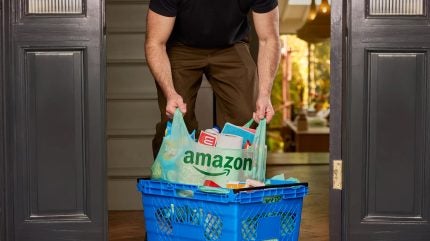
Amazon has initiated trials of biobased delivery bags in Spain for packing and delivering groceries.
The company noted that the eco-friendly bags are produced from European vegetable byproducts such as corn starch and vegetable oils, and have the potential to be recycled into new bags.
The delivery bags are developed by a collaboration between Italian company Novamont, a division of Versalis, and Amazon itself.
The pilot programme is currently underway for Amazon Fresh orders in the city of Valencia.
Amazon highlights the durability, food safety, and weather resistance of these bags, which are made from a material called Mater-bi.
According to the company, the Mater-bi material could gradually supplant the fossil-based plastics commonly used in the food retail and manufacturing sectors.
A key environmental benefit of these biobased bags is their safe biodegradability, which ensures they do not contribute to microplastic pollution.
In Valencia, customers can return their Amazon Fresh bags to drivers for mechanical recycling.
Local recyclers then process the used material into pellets, which Novamont uses to manufacture new bags.
This closed-loop system has garnered positive feedback, with 75% of Amazon customers within Valencia expressing satisfaction with the new packaging solution.
The outcome of the trial will inform Amazon’s decision on whether to expand the use of these biobased bags more widely.
In parallel, Amazon’s research scientists are collaborating with the US Department of Energy’s BOTTLE Consortium, led by the National Renewable Energy Laboratory (NREL), to develop new low-temperature recycling processes for biobased and biodegradable materials.
EsterCycle, a startup leveraging technology from NREL and Amazon, aims to scale this novel recycling technology beyond laboratory settings.




